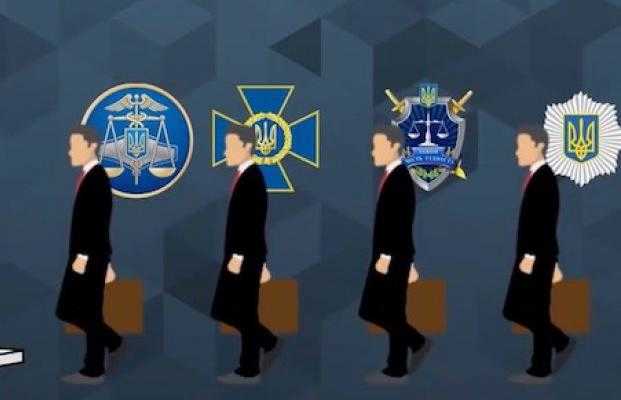
The State Labor Service of Ukraine (SLSU) has announced its intention of establishing a stricter control over businesses employing new staff. The corresponding checks will be also conducted with the support of the employees of the SLSU, National Police, employment centers, The Pension Fund, local authorities, etc. The main goal of these checks is to reveal any unreported employment.
Is there a trick involved in such an intention, or is it a bellwether of traditional checks envisaged in the corresponding Check Procedure? Could it be possibly connected to the relaxation of the quarantine? On 1st September the minimum wage in Ukraine was set at 5000 UAH. Hence, a questions arises: how is this going to be implemented in the context of the crisis and the COVID-19 pandemic? There are too many reasons against such undertaking, namely, the risk of higher inflation rates, considerable increase in budget expenditures, deficit and a more onerous budget burden on businesses.
Prognostications do not augur well, since this will mainly concern the diligent tax payers, even the ones whose expenditures exceed the minimum. The pressure exerted by the state on taxpayers is bound to lead to a more frequently emerging phenomenon of envelope wages. All this will affect the development of businesses, the citizens and, consequently, the country as a whole.
It is expected that “grey” businessmen will also be affected by the extremely harsh measures. They may face financial, administrative or even criminal liability. Here are some figures so that you have a clear picture of what kind of precarious situation the employers are going to find themselves in:
- • financial liability will imply fines starting from 47,200 UAH (about 1700 USD);
- • administrative liability will imply fines starting from 8,500 UAH (about 300 USD);
- • criminal will imply fines starting from 34,000 UAH (about 1200 USD) with no right to hold certain positions or undertake certain activities for the period of up to 5 years. One will have to reckon with a possibility of a five-year sentence or 2 years of correctional labor.
Financial risks and the ramifications of evading labor contracts go well beyond the expenses arising from institutionalizing labor relations with employees according to the current legislation. In any case, it is responsible employers and employees who pay taxes, impact on pension payments, sick leaves, maintenance of schools, roads, etc.
Below you can read the grounds on which the inspector may pay you a visit.
- If the employees file a grievance concerning the violation of their or someone else’s rights.
- Following the court’s ruling.
- If company officials have informed the corresponding institutional body.
- In case of an appeal concerning the violation of rules set by law.
- In case media and other sources insist on a check, having analyzed relevant information.
- If the initiative comes from trade unions.
- Upon the instruction issued by the Prime Minister of Ukraine.
- Upon the instruction issued by the Parliament.
- If representatives of the Tax Service and the Pension Fund inform businesses of the necessity to conduct a check.
- Upon the instruction issued by an MP.
All points listed above constitute an immediate ground for the visit of the labor inspector, in which case any information, analysis and observation is given careful consideration to. In order to ensure a high-quality monitoring and to learn how to reveal the signs of “grey” businesses, one needs to embark upon different tricks.
In such a scenario, no one should be caught off-guard by an unexpected visit of the inspector (who comes without warning). Bear in mind that the inspector may show up at any time. He or she will have the right to access all the facilities and demand to check any document, talk both to the management and to the staff. During the check the inspector may take photos, tape and film anything he or she deems necessary. If need be, the inspector may involve representatives of other state services. It has now become common for the inspectors to conduct checks remotely.
One cannot ignore the circumstances that are directly connected to the more rigorous checks. The main reason lies in the fact that the number of the employed population has dropped by almost half a million over the past 12 months. Due to the quarantine limitations imposed by the government, lots of employees have started working remotely. The newly introduced ban on checks has undoubtedly made things worse. However, the inspectors are doing their best searching for ways to detect “gray” businesses, gradually introducing new means of control needed to be deployed in the post-quarantine period.
Who is in the risk zone? Since the minimum wage has been raised and the checks have become more common and tight, it is worth readying yourself to the fact that “gray” business will be steadily demolished. The authorities will resort to any means available. Naturally, such measures will be first applied to those employers, who are most likely to depend on staff not recruited by a labor contract. These employers prevailingly work in food service industry, trade, service industry, construction, security guard activities, forestry, fishing industry and agriculture. According to the analysis, such enterprises can not only minimize the number of employees, but they can also set a minimum wage, part-time wage, etc.
What should the employers be expecting? Well, unexpected and very close checks. Their documentation will come under careful scrutiny, especially reports and other documents concerning the observation of all necessary legislative rules and provisions.
We would like to emphasize the fact that all of the aforementioned government initiatives pose an obstacle to transparent business operations, exacerbating the existing situation. It is getting extremely difficult to conduct business in accordance with law. The tack that the government has taken will not provide any support to the economics, nor will it help to exert control over businesses. It may have a damaging effect.
